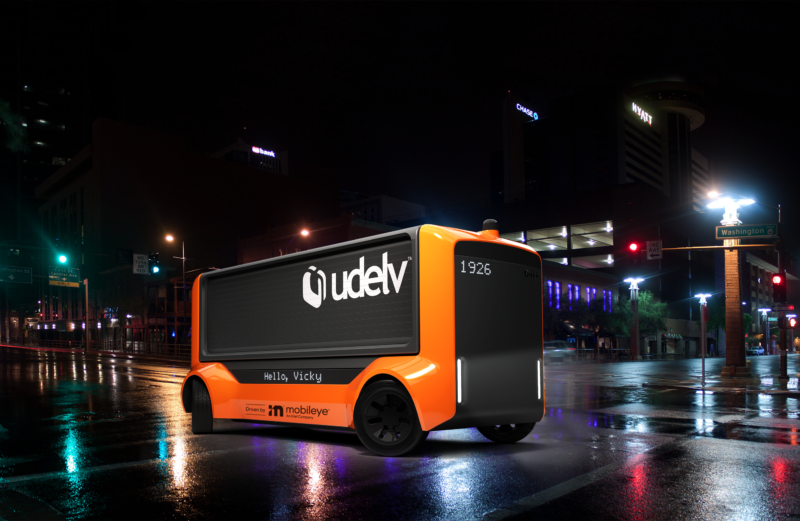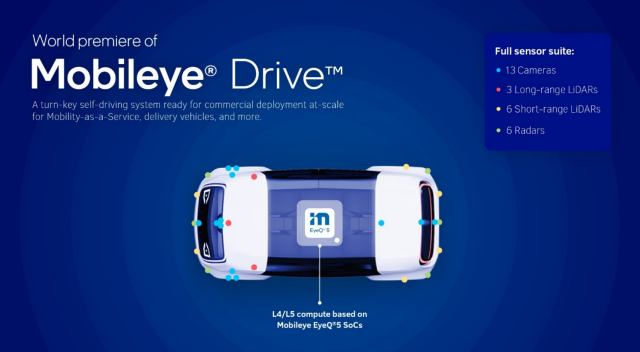This is Intel’s plan to dominate driverless car technology

Enlarge / Udelv hasn't announced details about its forthcoming Mobileye-powered delivery robots—such as who will help Udelv build them—but they are expected to look something like this. (credit: Udelv)
I've written before that Mobileye, an Intel subsidiary since 2017, is among the most formidable and underrated players in the self-driving sector. The Israeli company is the leading supplier of the chips, cameras, and software that power today's driver-assistance systems—a couple of years ago, Mobileye claimed 70 percent market share. The company is hoping to enjoy a similarly dominant position in the emerging market for fully self-driving systems.
On Monday, Mobileye announced that its self-driving technology stack would be branded Mobileye Drive. Mobileye says the technology will be "a turn-key self-driving system ready for commercial deployment at scale." A Mobileye Drive system will have 13 cameras, three long-range lidars, six short-wave lidars, and six radars. It will be powered by Mobileye's EyeQ 5 processors.
Mobileye says the technology will be ready for commercial use by 2023. That would be a big deal if true, but I can't help being skeptical. Over the last five years, a number of major self-driving companies have announced optimistic launch dates and failed to meet them.
Read 27 remaining paragraphs | Comments
source https://arstechnica.com/?p=1756247
